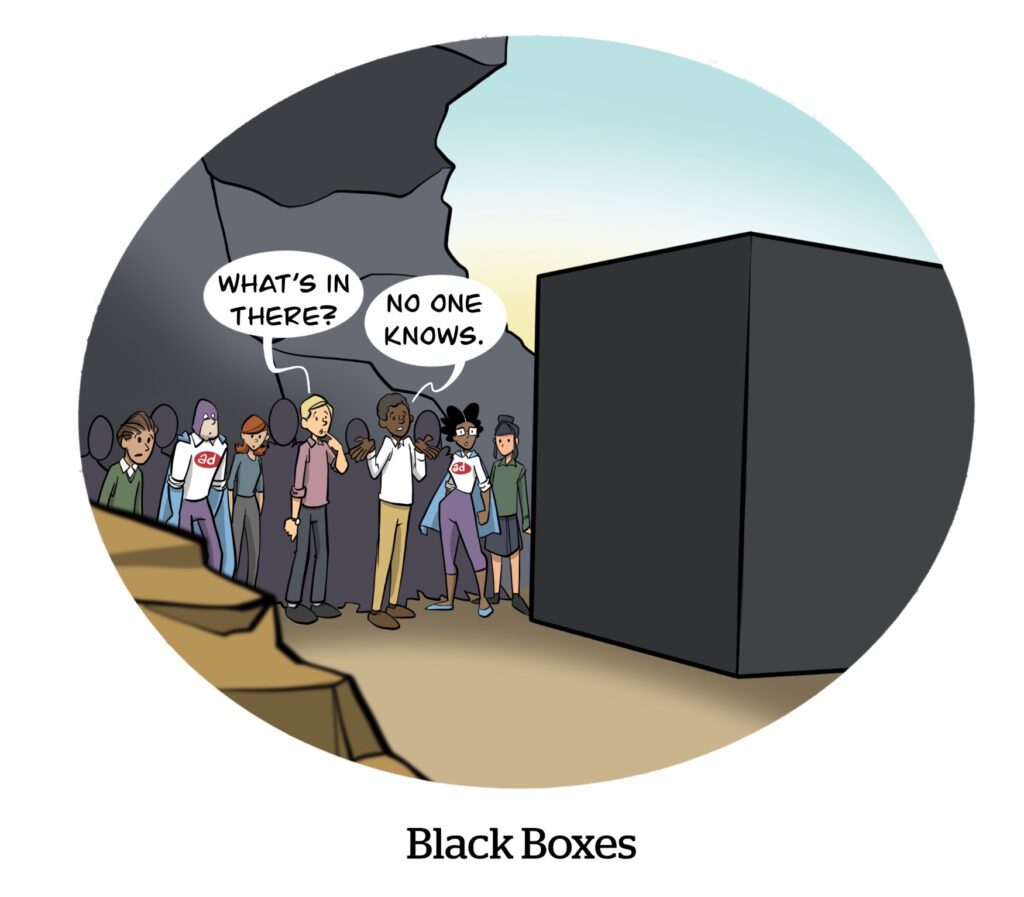Here’s today’s AdExchanger.com news round-up… Want it by email? Sign up here.
REPORT IT!
Meta’s ad platform misfired again last week, devouring budgets while delivering little value.
This is starting to look less like a mistake and more like a page from the Meta playbook.
Over the past year, Meta misappropriated hundreds of millions of ad dollars, mainly from accounts using its machine-learning-based products.
Meta’s protocol is to not notify advertisers when these events occur. But if advertisers do discover an issue themselves and go through campaign reconciliation, they’re lucky if they receive 90% refunds in the form of Meta ad credits. (Not a joke.)
And Meta benefits big time. It’s making cold hard cash and distributing gift certificates. Many small advertisers have been forced to open lines of credit because their Facebook arcade tokens don’t pay their overhead.
The problem is exacerbated by the use of cost caps, a (usually) useful ad platform tool that allows spending spikes. Cost caps prevent arbitrary daily budgets from forestalling profitable sales on an unexpectedly huge day.
When cost caps misfire, though, an advertiser that typically spends $500 in a morning might wake up to $50,000 missing from the bank.
Meta fired most of its human account service people last year, too, and the chatbot replacements (again, no joke) show little urgency in dealing with these issues.
Discreditable
Speaking of platform overspending issues, Google recently sent notices to Display & Video 360 customers alerting them about refunds after they were “overcharged for a subset of impressions” between July and December of last year, Ad Age reports.
The form email suggests customers follow up with sales reps if they have any questions.
But five agency buyers AdExchanger spoke with who got notice and followed up for context have received no clarity on what “subset” DV360 is refunding. Google didn’t respond to Ad Age’s request for comment.
The timeframe for the refunds – from July through December – is the exact same period when Adalytics chronicled a series of transparency-related issues across Google’s ad platforms. One report focused on YouTube video ads being misrepresented as sound-on and viewable, while a second report highlighted personalized ads served to kids. A third exposé uncovered unsuitable brand placements on Google’s Search Partner Network.
As with Meta, Google isn’t paying back accounts for glitches that caused overspending (on itself). Advertisers will instead receive “credit memos” that are good for one thing – spending yet more with Google.
Apps To Apples
Apple giveth; Apple taketh away.
Although Apple has been forced to open its iOS ecosystem to outside browsers and app stores in Europe, it can’t help but impose restrictions in other ways.
This time, it’s progressive web apps (PWAs), which allow a site to look and function more like a mobile app. PWAs never really caught on, largely because Apple quashed PWA functionality since it allows developers to claim subscription revenue without paying Apple’s 30% fee.
European iPhone owners can no longer install PWAs on their home screens, 9to5Mac reports.
Apple claims that it’s required to block PWAs due to the Digital Markets Act in Europe. But as the top comments on 9to5Mac’s story suggest, that’s not actually true.
But Apple has another excuse ready. It says it would need to build new software to address security and privacy concerns, and the web app market just isn’t big enough to merit the effort.
But Wait, There’s More!
Digital advertising is in disarray. [The Rebooting]
How publisher subscription strategies are evolving. [Adweek]
Why Paramount became a cautionary tale of the streaming wars. [Bloomberg]
The EU’s tough new moderation rules are about to cover a lot more of the internet. [The Verge]
Pay TV companies – and the DOJ – push back on the forthcoming “Spulu” (sports plus Hulu) streaming joint venture. [Next TV]
Cybersecurity firm CHEQ says more than 75% of traffic from ads placed on X during the Super Bowl came from bots. [Mashable]











